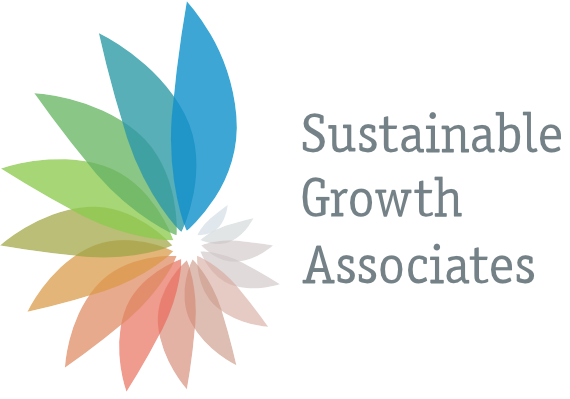It’s a challenging time for corporations and leadership development. Industries are being disrupted, markets are shifting and changing. So are the C-suites and leadership teams. A recently published survey from North Carolina State University’s ERM Initiative and Protiviti reveals that organisations see a lot of risks associated with rapid technological advances. C-suites that apply the systems view focus on societal and environmental threats as well. They see major challenges resulting from terrorism, cyber breaches on a massive scale and recurring natural disasters. An increasing number of executives tend to doubt their organisation’s resistance to change, although there is a full panoply of possibilities. At SGA, we help organisations transform purposefully and align the C-suite to the new world of work.
Changes on the C-level
The C-suite is evolving as dynamics are shifting to a more integrative leadership model based on systems thinking and effective partnerships. Management teams are considering the merit of expanding the C-suite with individuals equipped with the specialist expertise to tackle both internal and context issues. Functional specialists are expected to take a more strategic view of the business. At SGA, we share the thoughts of Russell Reynolds published on trends and shifts in the C-suite.
Multicultural working environment: People look for a business environment where they feel they belong, regardless of demographics, gender, religion, background or life-stage. Therefore, the future C-suite will strive to achieve diversity in all areas: age, race, thought, experience and perspective. Creating a purposeful organisation will be a key leadership issue for the cultivation of innovative thought.

© M_a_y_a @ iStock
New executive roles: Purpose, core values, company culture, employee happiness and digital transformation will be the hallmarks of future-fit organisations. The new C-suite will benefit from combining tech savviness and data analytics with emotional intelligence and relationship building capabilities. New executive roles will be created, such as the CCO (Chief Culture Officer), CPO (Chief People Officer), CHRO (Chief Human Resources Officer), CIO or CINO (Chief Innovation Officer), CCO (Chief Customer Officer), CDO (Chief Data Officer) or the CAO (Chief Analytics Officer). Role changes will enhance the organisation’s overall resilience and effectiveness. In general, C-suites will become more collaborative and cross-functional places.
Core capabilities: Members of the new C-suite will catalyse the change they wish to bring about in the organisation based on a shared systems approach. They will take an expanded view on the set of relationships and interactions between business, society and the environment. In doing so, they opt for a purposeful way of aligning a company’s vision, strategies, processes, employee and stakeholder engagement to achieve positive impact. Adaptability and agility are becoming essential when it comes to execution. The ability to develop and execute solutions on demand is one of the most valuable executive skills for future-fitness. Our ACER framework (Awake, Comprehend, Embrace, and Respond) is a key method in this context.
The ACER process
© Sustainable Growth Associates GmbH
Redefining structures, success and loyalty: There is a definite shift towards flatter hierarchies and a more egalitarian work environment. New leadership styles will adopt a more group-minded approach without compromising on effectiveness and performance. At SGA, we help executives find the right balance in order to create a culture that is open, collaborative and diverse. Loyalty is not about how long someone stays in the organisation. It is rather about the value of the contributions made during one’s employment and the level of investment, however long or short it may be.
Leading through a shared purpose: Visionary C-suites embrace purpose to achieve positive value creation in a broader context, connecting the organisation with society and the environment it operates in. They have become role models for those who want to work with a purposeful company that is a force for good. Millennials in particular define great leadership focusing on human value as characterised by a multitude of attributes, such as authenticity, credibility and approachability. A recent survey conducted by American Express confirms that business will change as Millennials, defined as those born between 1980 and 1996, rise to the C-Suites. Empathy, respect, being a good listener and a lack of ego will be the keys to better engagement with employees, customers and stakeholders. The organisation’s overall purpose will remain the lens for viewing the big picture.

© shironosov @ iStock
Critical behaviours in the future C-suite
Managing difficult situations, the future C-level members will be self-aware enough to know when to listen to and lean on others. To move things forward, they will build tight-knit teams and stakeholder networks, apply platform thinking and establish strategic alliances across the value chain. They will remain adventurous and optimistic, but at the same time they will be able to resist trend chasing and green washing. SGA’s leadership development programmes are inspired by behavioural science, best practice and the experience that purpose drives performance and the right behaviour to gain trust.
Rewriting the rules for the digital age
What we can see happening is that executives are working intensively on what PwC calls “a strong digital IQ”: 82% of top-performing companies pay attention to the human experience surrounding digital technologies. Organisations are currently investing in a culture of technology-based innovation and value creation. They start to create a completely different kind of C-suite, with a new breed of younger, more agile and digital-ready leaders. When business models become more digital, dynamic and connected, leaders need new capabilities to execute these models. At SGA, we are passionate about helping organisations to rethink their purpose and C-level strategy. Together, we can move beyond tradition.
To find out more, please get in touch with us.

